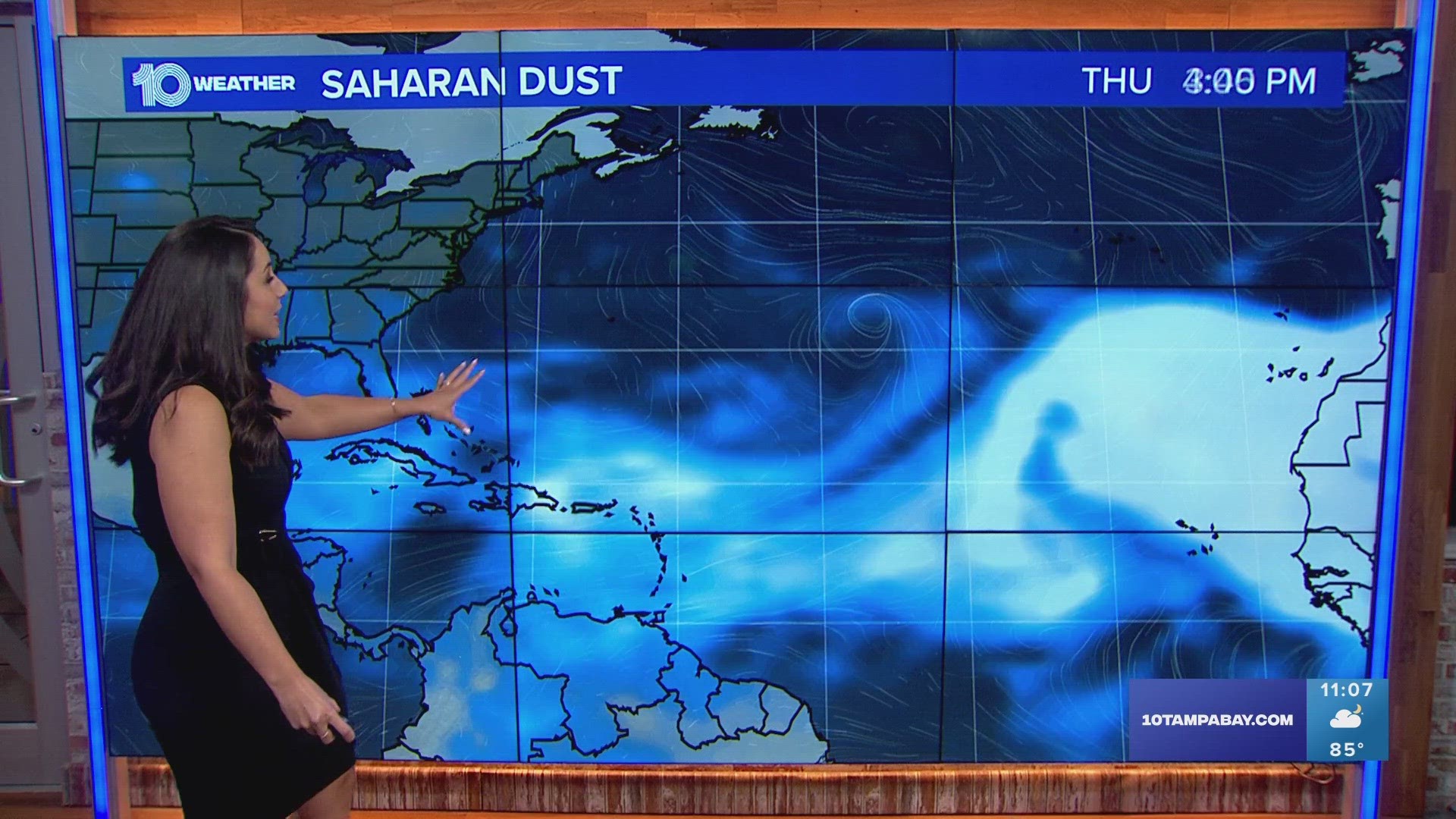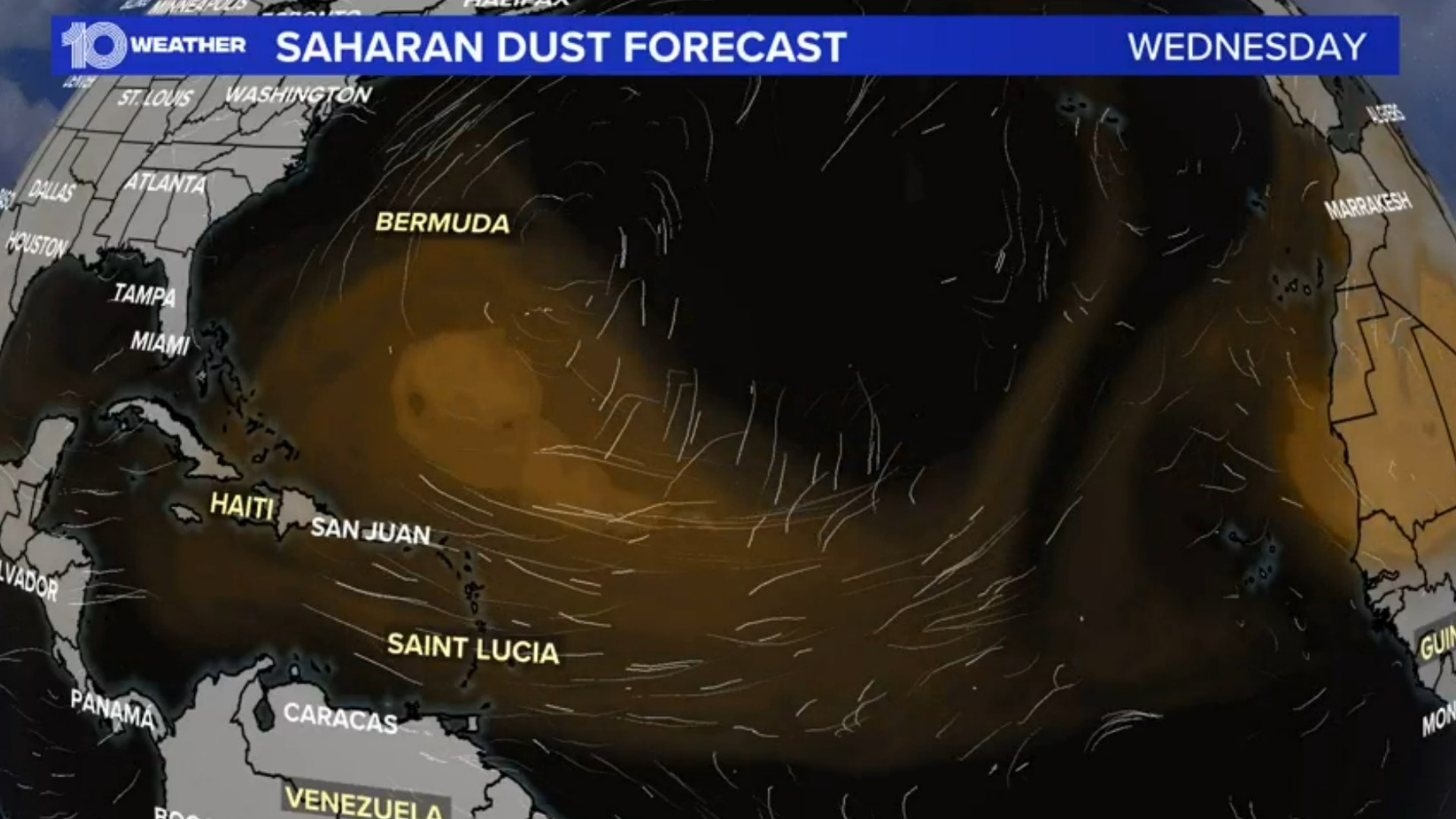ST. PETERSBURG, Fla. — A plume of dust that originated from Africa is making its way across the Atlantic Ocean and into the Caribbean and South Florida, a weather satellite showed this week.
The Saharan Air Layer (SAL) reached Puerto Rico last month, only barely reaching parts of Florida. But this week, the National Weather Service reported brisk upper easterly level winds transporting plumes of Saharan dust across the Atlantic and into South Florida through the next week.
The dust particles can limit shower and thunderstorm coverage across the area when its present.
The Saharan Air Layer (SAL) is a dry and dusty air mass that forms in the Saharan Desert in northern Africa. In late spring and early summer, trade winds pick up this mass of dusty air and carry it nearly 4,000 miles from its origin across the tropical Atlantic and can reach as far west as Texas.
What about tropical development? Well, the good news is that Saharan dust can actually limit tropical activity. That's because the dry air and strong winds can help inhibit tropical cyclone development and/or intensification, at least temporarily.
While not all plumes are robust enough to make their way all the way to the U.S., the Tampa Bay area will notice a very slight haze in the sky over the next several days.
There may be some dusty particles that could reach down to the surface. In these situations, air quality will be reduced potentially posing a threat to those with respiratory issues. It’s important to stay aware of the air quality on days when these Saharan dust plumes move into the area. Symptoms that you might experience may be similar to those resembling allergies, such as scratchy throat, itchy eyes, sneezing or coughing.
Warm and dry air is also associated with these plumes of Saharan dust and often times areas experience their hottest days of the year when these plumes are present. In addition to the potential for poor air quality, it’s also important to be mindful of the dangers of excessive heat, especially through the middle of the afternoon.


